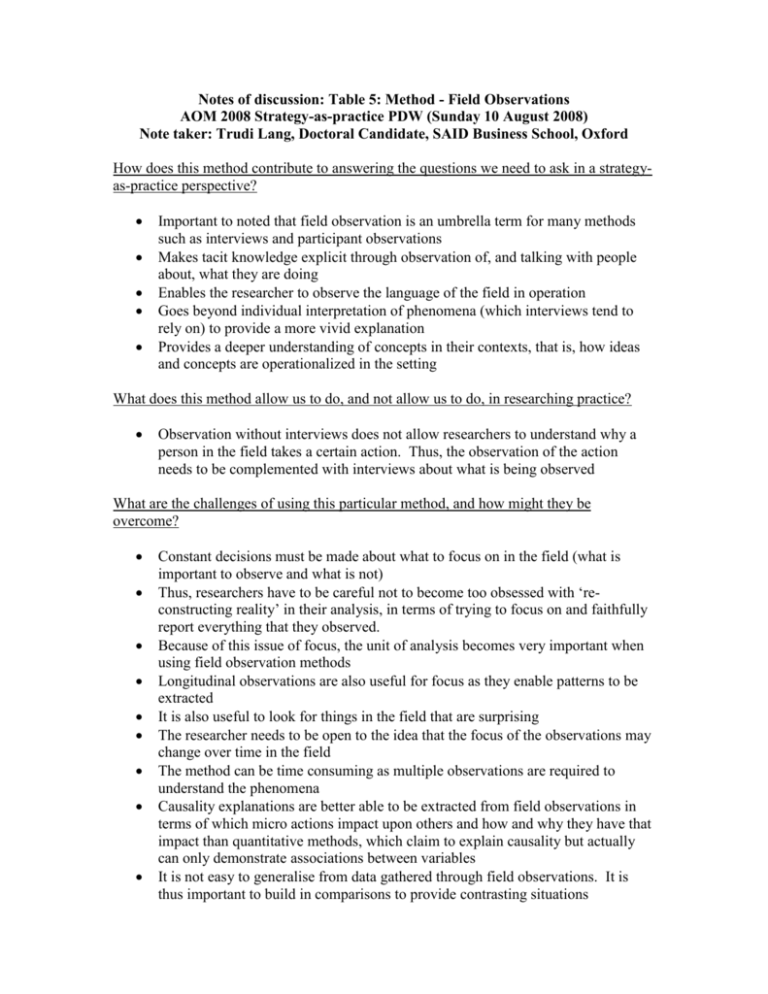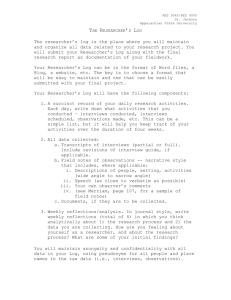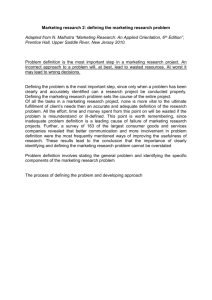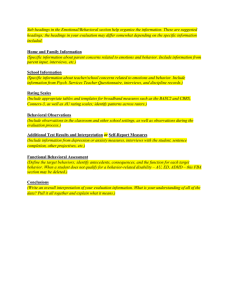Method: Field Observations
advertisement

Notes of discussion: Table 5: Method - Field Observations AOM 2008 Strategy-as-practice PDW (Sunday 10 August 2008) Note taker: Trudi Lang, Doctoral Candidate, SAID Business School, Oxford How does this method contribute to answering the questions we need to ask in a strategyas-practice perspective? Important to noted that field observation is an umbrella term for many methods such as interviews and participant observations Makes tacit knowledge explicit through observation of, and talking with people about, what they are doing Enables the researcher to observe the language of the field in operation Goes beyond individual interpretation of phenomena (which interviews tend to rely on) to provide a more vivid explanation Provides a deeper understanding of concepts in their contexts, that is, how ideas and concepts are operationalized in the setting What does this method allow us to do, and not allow us to do, in researching practice? Observation without interviews does not allow researchers to understand why a person in the field takes a certain action. Thus, the observation of the action needs to be complemented with interviews about what is being observed What are the challenges of using this particular method, and how might they be overcome? Constant decisions must be made about what to focus on in the field (what is important to observe and what is not) Thus, researchers have to be careful not to become too obsessed with ‘reconstructing reality’ in their analysis, in terms of trying to focus on and faithfully report everything that they observed. Because of this issue of focus, the unit of analysis becomes very important when using field observation methods Longitudinal observations are also useful for focus as they enable patterns to be extracted It is also useful to look for things in the field that are surprising The researcher needs to be open to the idea that the focus of the observations may change over time in the field The method can be time consuming as multiple observations are required to understand the phenomena Causality explanations are better able to be extracted from field observations in terms of which micro actions impact upon others and how and why they have that impact than quantitative methods, which claim to explain causality but actually can only demonstrate associations between variables It is not easy to generalise from data gathered through field observations. It is thus important to build in comparisons to provide contrasting situations However, it is possible to achieve theoretical generalizability from data collected using these methods











